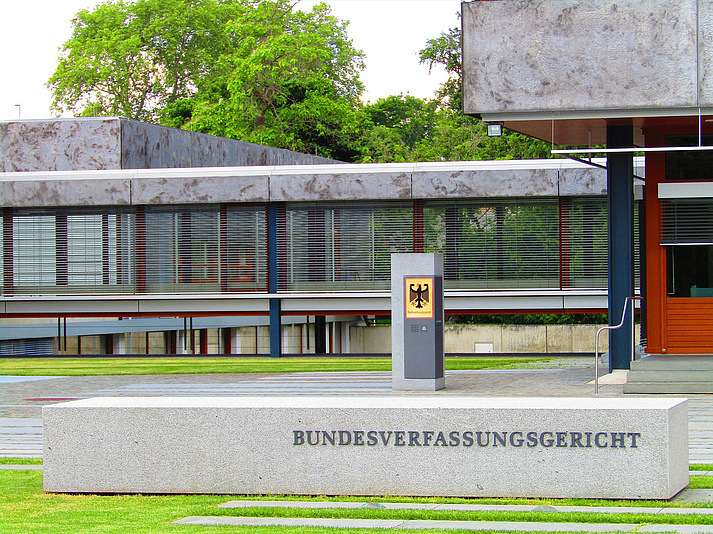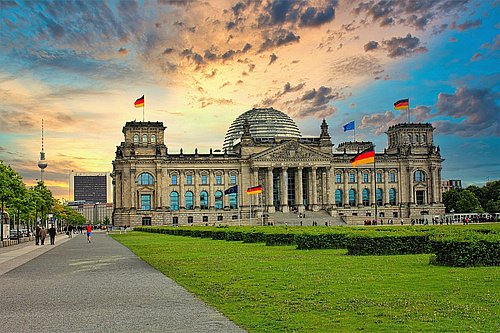Interaction between Constitutional Court Decisions and Political Decision-making Processes in the Federal Republic of Germany and the United Kingdom
Researcher: Philipp Scheurer

Recent debates about the political (in-)dependence of the Polish Constitutional Court have caused an increased focus on the importance of independent constitutional courts for a democratic constitutional state. Although not to the same extent as in Poland, relations between politics and the Federal Constitutional Court in Germany (Bundesverfassungsgericht) are controversial, as well. Most recently, judges of the Bundesverfassungsgericht have faced allegations of bias in the proceedings concerning the German policy in the Covid pandemic after a joint dinner with members of the federal government in the summer of 2021. Critical voices expressed concern that the court was no longer able to rule independently on the so-called "Covid measures" (Corona-Maßnahmen), and that the Bundesverfassungsgericht was too closely intertwined with politics.
However, there is also occasional criticism from the political side, expressing that the Bundesverfassungsgericht unduly interferes in political issues and acts as a “substitute legislator”. The Bundesverfassungsgericht criticizes an alleged sidetracking of unpleasant decisions from the political realm onto constitutional jurisdiction. In view of the above, this research project analyses the interaction between constitutional court decisions and political decision-making processes as typical features of modern, liberal democracy. It not only views the will of the current political majority as a standard for public decision, but also judges those decisions by the standard of the current (constitutional) law.
On the one hand, the project analyses case studies in which constitutional court decisions have revived a faltering political process, such as the property tax reform or the issue of equality of same-sex partnerships in relation to marriage. On the other hand, the project examines decisions by constitutional courts that have ended political debates, such as the ruling on voting rights for non-German nationals.
The project will compare the German constitutional court's influence on German politics to the influence of the Appellate Committee of The House of Lords until 2009 and the United Kingdom Supreme Court since then. The Appellate Committee of The House of Lords was and the UK Supreme Court is the British constitutional jurisdiction since the constitutional reforms of Tony Blair's government. The reason for choosing these two countries is that Germany is seen as emblematic of a strong kind of judicial review and the United Kingdom as representative of a weak one by many legal and political science scholars. Therefore, the project also wants to investigate the question to what extent the division between strong and weak forms of judicial review still makes sense in a globalized world. Therefore, the international or European embeddedness of the two systems will also be examined, especially with regard to the influence of the European Court of Human Rights on both systems.

